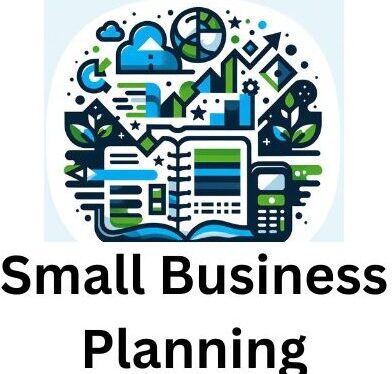
CRM, or Customer Relationship Management, is the backbone of managing a company’s interactions with current and potential customers. At its core, CRM software is all about streamlining processes, building customer relationships, increasing sales, and improving customer service.
Small businesses, often with limited resources and manpower, need tools that are both dynamic and user-friendly. CRM software has evolved beautifully to cater to their unique needs, offering platforms that aren’t just stripped-down versions of tools meant for larger enterprises, but are built from the ground up to support smaller scale operations.
For any small business, keeping tabs on customer interactions across emails, calls, and social media can get overwhelming. That’s where a CRM system steps in, acting as a digital assistant that organizes all customer info into one place. This makes it easier for small teams to personalize their approach to service and sales.
It’s not just about managing contacts but enhancing the entire sales strategy. By leveraging a CRM system, small businesses can close deals faster, respond more speedily to customer inquiries, and provide a more personalized customer service experience. This streamlined process can significantly impact sales figures and customer satisfaction positively.
In a world where customer expectations are continuously changing, a CRM system provides the tools small businesses need to stay updated and competitive. It helps in analyzing patterns and behaviors, equipping businesses with powerful insights to anticipate what customers might need next.
Key Benefits of CRM Software for Small Business Sales
Boosting customer retention is a big deal for small businesses, and CRM software is like a magic wand for this. By storing detailed customer information, it helps businesses understand their customers’ needs and preferences better, forming a solid base for nurturing long-term relationships. Everyone loves when a business remembers their past orders or suggests products they might like.
In the competitive world of sales, hitting targets is crucial, and with CRM software, tracking these targets becomes a breeze. It allows teams to monitor sales performance in real-time and adjust strategies as needed. This not only saves time but also identifies opportunities and gaps that might’ve been missed otherwise.
The beauty of a CRM system lies in its ability to let businesses customize their sales pipelines. No two businesses are the same, even if they’re selling similar products. CRM systems provide customizable features that align with specific business needs, allowing small businesses to enhance efficiency and productivity without having to fit into a ‘one-size-fits-all’ mold.
CRM software also shines in its ability to automate time-consuming tasks. Tasks like sending follow-up emails or scheduling calls can all be automated, giving sales teams more time to focus on what they do best – selling. This kind of automation reduces the chance of human error and ensures nothing slips through the cracks.
Having detailed analytics at their fingertips empowers small businesses to make data-driven decisions. CRM systems provide insightful reports on sales and customer behaviors, enabling businesses to tweak marketing strategies and hone in on what’s working. These insights are like a roadmap, showing precisely how to increase sales and customer satisfaction.
Selecting the Right CRM Software for Your Small Business
Figuring out what your business really needs can feel like a juggling act, but it’s key when choosing a CRM system. Start by mapping out both your short-term and long-term goals and how a CRM system can help you reach them.
It’s easy to get lost in a sea of features when picking out software. The trick is to focus on the essentials that’ll make a difference for your business’s specific requirements. Craft a must-have list and prioritize features that will grow with your business without overwhelming you.
Budget is always a concern for small businesses. Evaluating cost versus benefit is crucial. Look at not just the upfront costs but also the potential savings and revenue boosts a CRM system could bring with increased efficiency and better customer management.
Testing out different CRM systems with free trials or demos can be incredibly insightful. It allows you to get a feel for the interface and see how intuitive the system is for you and your team. Remember, a CRM system is only as good as it is usable.
I have found that a product called Monday.com checks all of the boxes. It is well knows and completely scalable. If you would like additional information about Monday.com please click on the link. I am sure you will not be disappointed.
Sometimes the fanciest product isn’t the best fit. Seek recommendations and read customer reviews to make sure the CRM system has a good track record. Industry-specific CRM systems might also offer tailored solutions right up your alley.
Your choice of a CRM system should integrate well with other software your business uses. Whether it’s your accounting tools or marketing platforms, seamless integration means fewer headaches down the road and more cohesive operations.
Integrating CRM Software with Your Existing Business Operations
Before jumping into a CRM system, it’s crucial to assess the tech environment your business currently operates in. Understanding your existing workflows and pinpointing what areas need improvement helps in selecting a CRM system that complements your operations seamlessly.
Change isn’t always easy, especially for team members used to a certain way of doing things. Planning a rollout strategy for your new CRM system will smooth the transition. Stagger the introduction of new features so team members have time to adapt and embrace the change, ensuring they’re comfortable before fully implementing the system.
Training your team is vital for successful integration. Investing in a comprehensive training program not only boosts confidence among employees but also ensures that they’re using the CRM system to its fullest potential, maximizing the return on investment.
Getting everyone on board from the get-go can actually turbo-charge the CRM system’s success. Encourage your team to provide feedback during the onboarding process to address any concerns or roadblocks early. This feedback loop will also help in customizing the CRM system to better suit your team’s everyday needs and tasks.
It’s not just about integrating a new tool; it’s about elevating business processes as a whole. Automating routine tasks through a CRM system not only saves time but also allows employees to focus on more strategic activities, which can lead to increased productivity and business growth.
Real-World Case Studies: Success Stories of Small Businesses Using CRM
Small businesses from various industries have transformed their operations and outcomes using CRM software, providing plenty of real-world proof of its power.
Take a local bakery, for example, that struggled with customer retention due to sporadic follow-ups. Implementing a CRM system allowed them to track customer preferences, send timely reminders, and personalize communications, resulting in a noticeable bump in repeat business and customer loyalty.
Another inspiring case involves a small marketing firm juggling multiple client relationships. Through CRM, they managed to streamline communication and project tracking, significantly reducing miscommunication and missed deadlines. The result? Happier clients and more referrals.
Of course, it’s not always smooth sailing at first. A home-based craft business shared how the initial adaptation phase was challenging due to team pushback. However, ongoing training and adaptation to the CRM system’s features eventually multiplied their operational efficiency.
From these stories, a common thread emerges: patience, customizability, and ongoing support are key to unlocking a CRM system’s full potential. These businesses didn’t just purchase software—they committed to a process that transformed their operations.
Looking at these success stories offers not just inspiration but also practical insights for anyone considering a CRM system. By observing these examples, small business owners can visualize how a CRM system could fit into their unique operations and the kinds of results they might achieve.
Here’s a little transparency: Our website contains affiliate links. This means if you click and make a purchase, we may receive a small commission. Don’t worry, there’s no extra cost to you. It’s a simple way you can support our mission to bring you quality “Business Planning content.”

It’s fascinating to see how even small companies can use technology to build stronger customer relationships and drive growth. The balance between automation and personal touch is key. While CRMs can save time and provide valuable insights, there’s always the question of whether relying too much on technology might make interactions feel less authentic. Do you think there’s a tipping point where automation can hinder customer relationships? I’d love to hear your perspective!
Thanks for the comment.
I don’t think there is a tipping point for automation. Innovation and change are a constant. Systems keep evolving for the better and I don’t see that changing.
This post does an excellent job of explaining how CRM software can streamline small business operations and boost sales. I love how it emphasizes the importance of choosing the right CRM based on specific business needs and goals. The real-world case studies are really insightful, showing how businesses in different industries successfully implemented CRM systems. I also appreciate the tips on integration and training to ensure a smooth transition. Overall, this is a great guide for small business owners looking to optimize their sales and customer relationships!